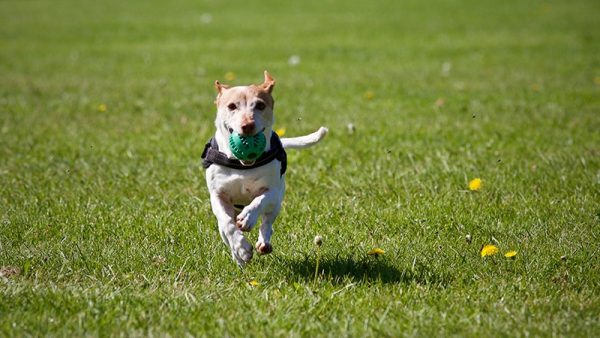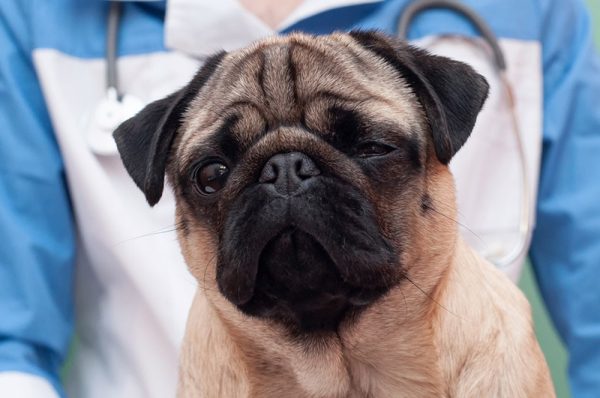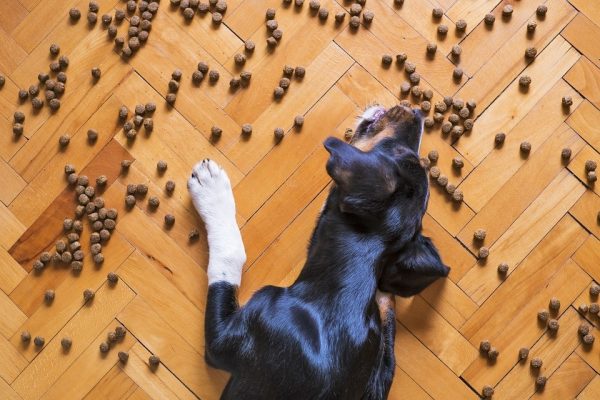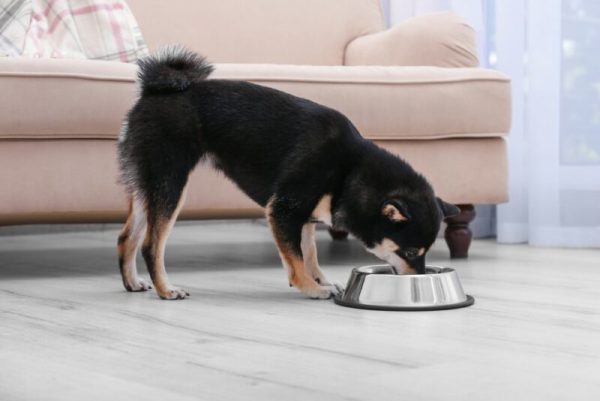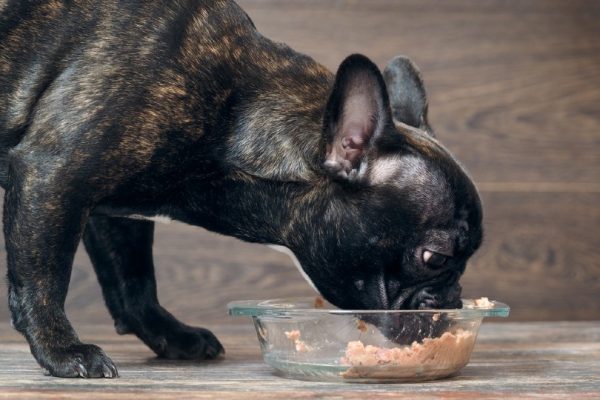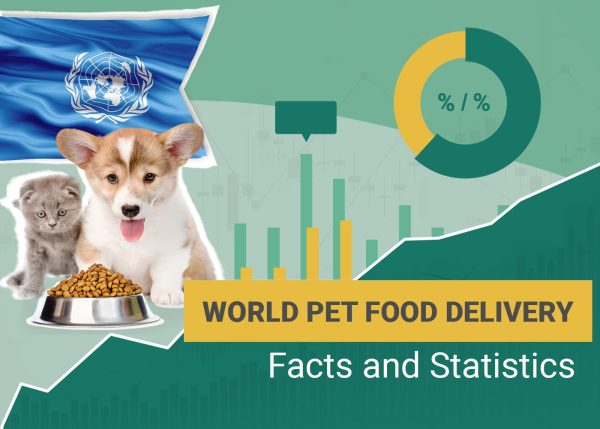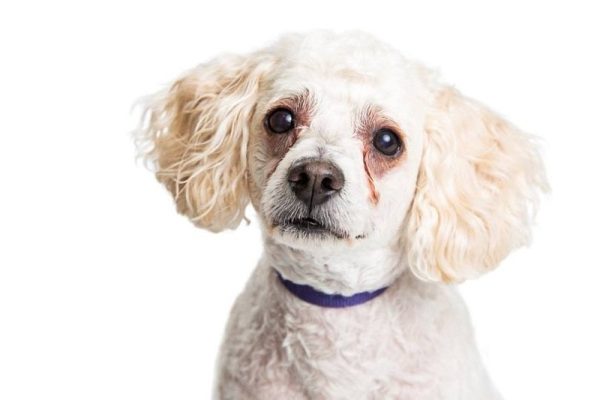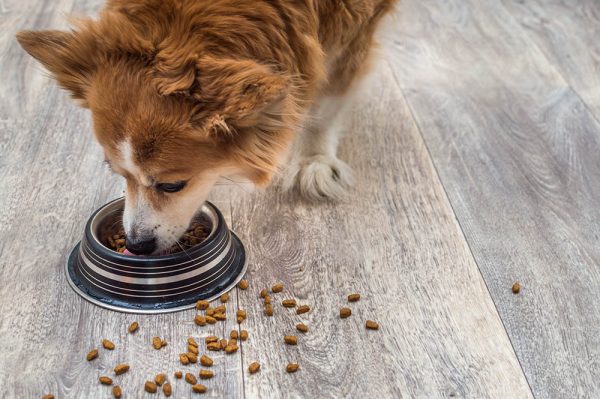Welcoming a new puppy into your home is an exciting time full of adorable tail wagging and cuddles. However, if your cute puppy seems to be producing some decidedly unpleasant smells, you might wonder what’s going on. Here are 10 common reasons your puppy might be farting so much.

The 10 Reasons Why Your Puppy Farts So Much
1. Diet Change
A puppy’s digestive system is still developing and changing, but that doesn’t mean their diet should be. Abruptly switching puppy foods can throw the gut bacteria off kilter, potentially leading to some gassy buildup as they try to work through the new food. Since most dog parents often switch their puppy to a new diet the minute they get home, extra farting may concurrently occur.
To help with this, try feeding the same brand and flavor of puppy food that the breeder or shelter or wherever you got your new pup from was feeding. You can then slowly transition them to a new food of your choosing over the course of a couple of weeks.
2. Food Ingredients
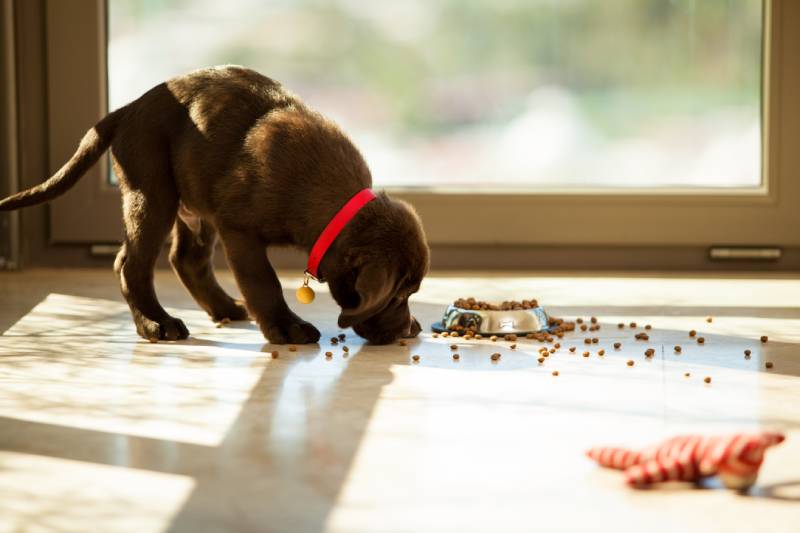
Some ingredients in your puppy’s food could be making them gassy. For example, diets high in fiber can be more difficult to digest. The more difficult something is to digest, the more chance there is for gas production and buildup. High-fat ingredients, soybeans, peas, and beans can also contribute to gassiness in puppies.
If you suspect your puppy may be farting due to ingredients in their food, ask a vet to help you find a new food that may be easier to digest. Just remember to make the switch slowly!
3. Dietary Indiscretion
Puppies are notorious for eating items they shouldn’t, especially when teething. They aren’t picky about what they consume, either. Trash, rotting food, or dead birds they find in the yard are all fair game.
Any type of dietary indiscretion could make your puppy fart more. Always keep your puppy on a leash outside the yard to prevent them from scavenging. Check your house and yard frequently for discarded food, especially if you have kids. Keep your trash can securely sealed, or place it somewhere inaccessible to your puppy. Keep your table scraps on the table and out of your puppy’s dish as well.
4. Eating Too Fast
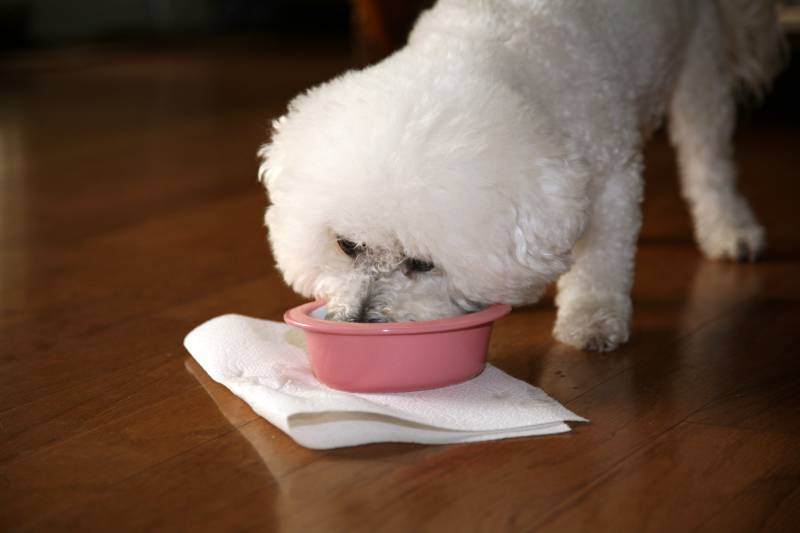
Does your puppy inhale every meal like they fear it will be their last? If so, this speed-eating or drinking habit could be making them gassy. When your puppy gulps their food, they also swallow a lot of air along with their kibble. All that air must come out somewhere, and that could mean in the form of flatulence.
Swallowing too much air is a common cause of excessive farting in puppies. Consider feeding your puppy multiple small meals a day or using a food bowl designed to slow down their eating. Feed your puppy separately from other pets, especially older ones, so they don’t feel pressured to eat quickly.
5. Breed-Related Issues
Your puppy’s breed could be responsible for them farting so much. Breeds with short noses and flat faces may naturally swallow more air than others because of their facial anatomy. French Bulldogs, Pugs, Bulldogs, and Boston Terriers are all examples of brachycephalic or short-nosed breeds that may swallow extra air.
These dogs are also prone to breathing issues and are less tolerant of extreme temperatures than dogs with normal noses. Farting too much might be unpleasant, but it may be the least of your concerns. Ensure you’re educated about all the health problems your brachycephalic puppy might be prone to.
6. Parasites

Puppies are frequently infected with intestinal parasites. In addition to more serious symptoms, parasites can make your puppy fart. If your puppy has worms, you may notice signs such as diarrhea, vomiting, weight loss, a bloated pot-belly appearance, and gas.
Generally, parasite infections are diagnosed by checking a stool sample, and puppies are usually dewormed on a regular schedule for the first few months of their lives. It’s best to follow a veterinarian’s recommendations to treat parasites. Severe parasitic infections can be dangerous and even life-threatening for your puppy.
7. Food Sensitivity
Puppies who develop early food intolerances and food allergies may fart more than others. Because it generally takes time for a dog’s body to develop a food allergy, they aren’t as common in younger puppies.
However, some breeds may be more prone to allergies, so they could be causing your puppy’s farts, especially if they are older. Other common signs of food intolerances and allergies include itchy paws, ears, or skin, along with diarrhea and vomiting. Talk to a vet if you notice these signs to rule out other causes besides food allergies first.
If you need to speak with a vet but can't get to one, head over to PangoVet. It's our online service where you can talk to a vet online and get the personalized advice you need for your pet — all at an affordable price!
8. Bacterial Overgrowth
All dogs rely on gut bacteria to help digest and process their food. However, the bacteria must stay balanced to allow the system to work correctly without issues. If your puppy develops a bacterial overgrowth in their intestines, it could make them fart more. Bacterial overgrowth may occur due to an illness, surgery, or after a course of antibiotics.
With this condition, the extra bacteria impact how the puppy’s intestines absorb nutrients. Gas and diarrhea are common signs of this problem. Because they can also be a sign of other conditions, you must take your puppy to the vet for a diagnosis.
9. Gastroenteritis
Gastroenteritis, or inflammation of the puppy’s stomach and intestines, is another possible reason they are farting so much. This medical condition could be caused by a virus, bacteria, eating something that doesn’t agree with the puppy, or even parasites.
In addition to flatulence, you may see signs like vomiting, diarrhea, or belly pain. See a vet if you notice any of these signs, especially if your puppy stops eating and drinking. Young puppies can quickly get dehydrated if they lose fluids without taking in enough to replace them.
10. Digestive Disorder
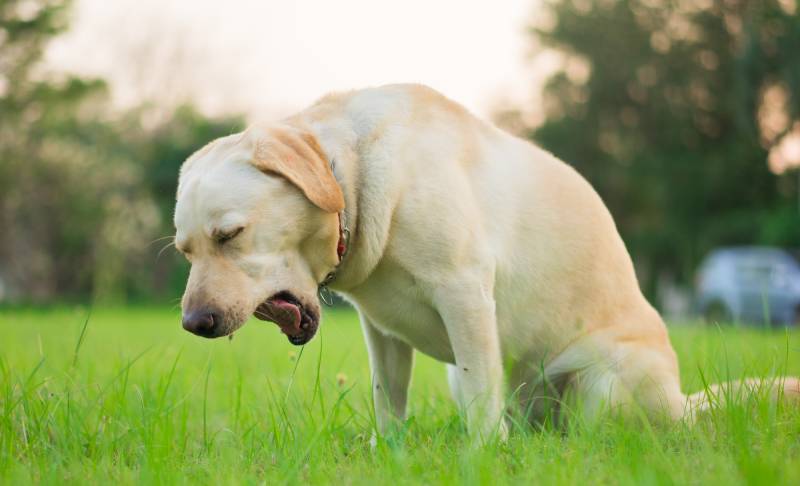
Puppies and dogs can suffer from a variety of digestive disorders that make them fart more. Inflammation, enzyme deficiencies, or others can all lead to changes in digestion and more gas.
Puppies suffering from a digestive disorder may struggle to gain weight and grow despite a ravenous appetite. You may also notice gas and diarrhea, vomiting, or stomach pain. Diagnosing and managing digestive disorders can be tricky and often require veterinary care.

Conclusion
If your puppy farts a lot, one of these 10 common reasons could be to blame. Keep in mind that simply digesting food can lead to a certain amount of gas buildup in the intestines, resulting in farts.
Gas can be a normal part of your puppy’s life, but if it seems excessive or you notice other signs, it’s time to talk to a veterinarian. Many digestive issues we discussed can impact a puppy’s growth and development, so it’s vital to get them diagnosed and treated correctly.
See Also:
- 2-Month-Old Puppy: What to Expect (Vet-Approved Guide)
- What Can You Give a Dog for Gas? 5 Vet-Recommended Tips
Featured Image Credit: san4ezz, Shutterstock








